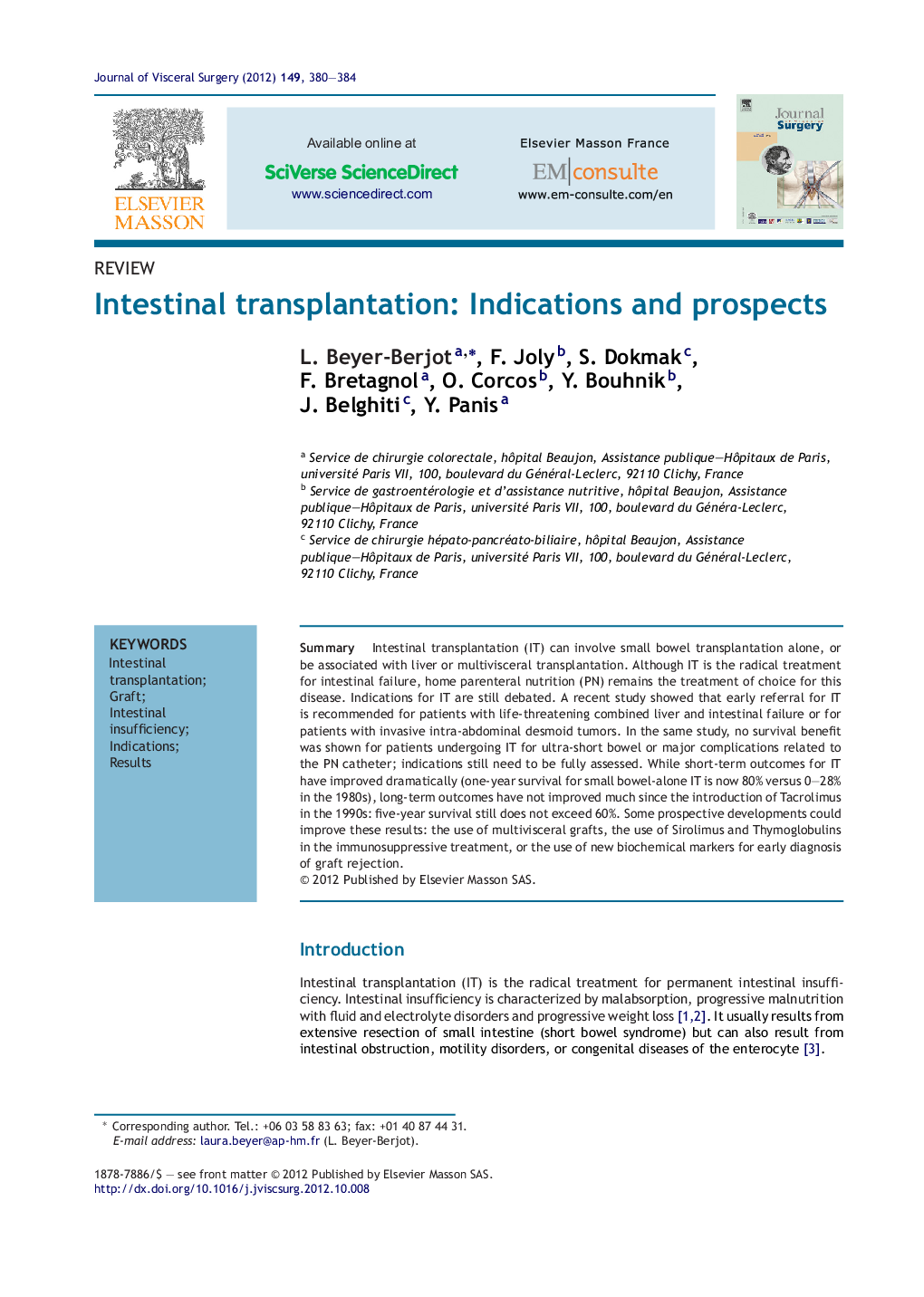| Article ID | Journal | Published Year | Pages | File Type |
|---|---|---|---|---|
| 3316140 | Journal of Visceral Surgery | 2012 | 5 Pages |
SummaryIntestinal transplantation (IT) can involve small bowel transplantation alone, or be associated with liver or multivisceral transplantation. Although IT is the radical treatment for intestinal failure, home parenteral nutrition (PN) remains the treatment of choice for this disease. Indications for IT are still debated. A recent study showed that early referral for IT is recommended for patients with life-threatening combined liver and intestinal failure or for patients with invasive intra-abdominal desmoid tumors. In the same study, no survival benefit was shown for patients undergoing IT for ultra-short bowel or major complications related to the PN catheter; indications still need to be fully assessed. While short-term outcomes for IT have improved dramatically (one-year survival for small bowel-alone IT is now 80% versus 0–28% in the 1980s), long-term outcomes have not improved much since the introduction of Tacrolimus in the 1990s: five-year survival still does not exceed 60%. Some prospective developments could improve these results: the use of multivisceral grafts, the use of Sirolimus and Thymoglobulins in the immunosuppressive treatment, or the use of new biochemical markers for early diagnosis of graft rejection.
